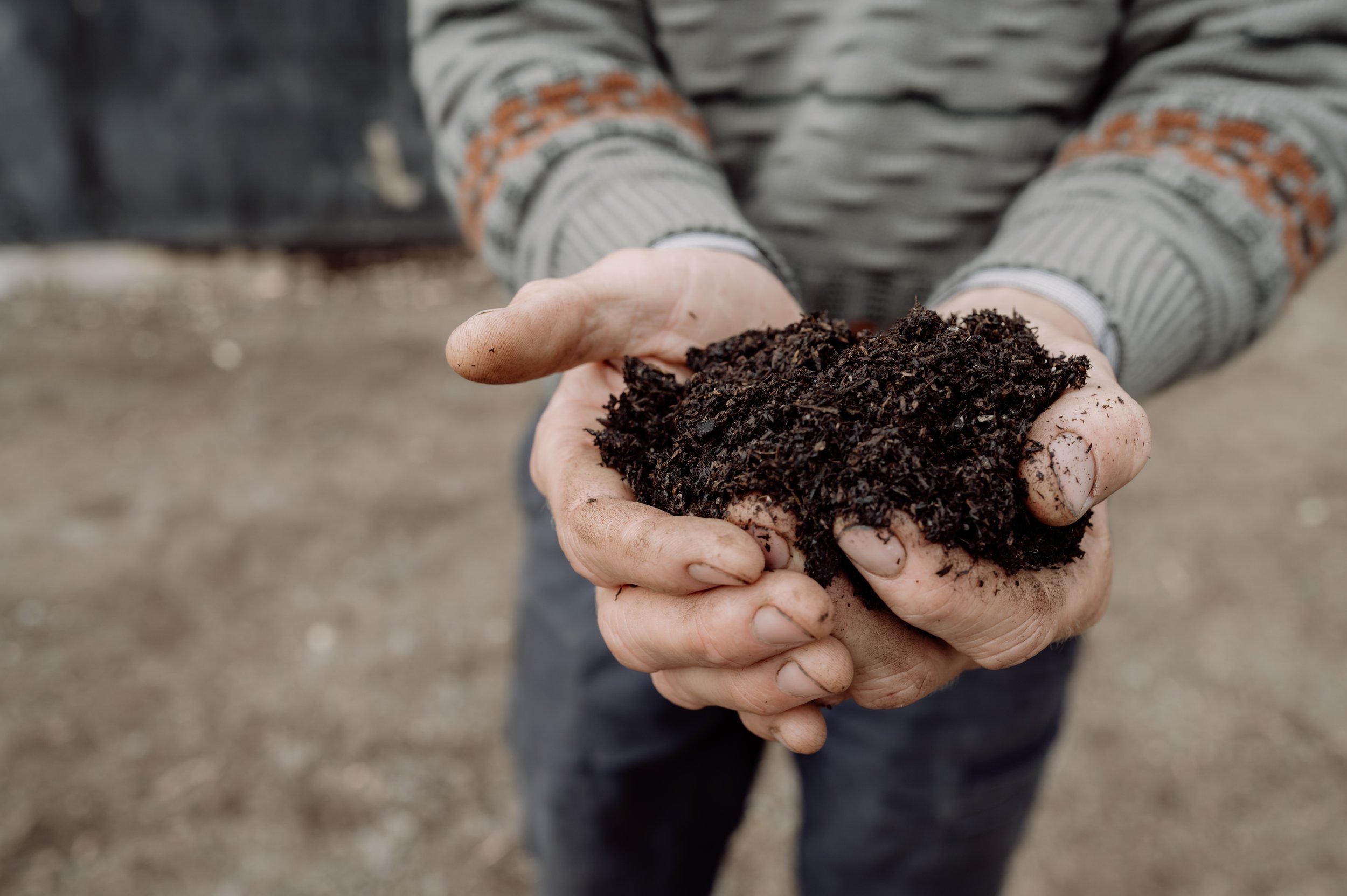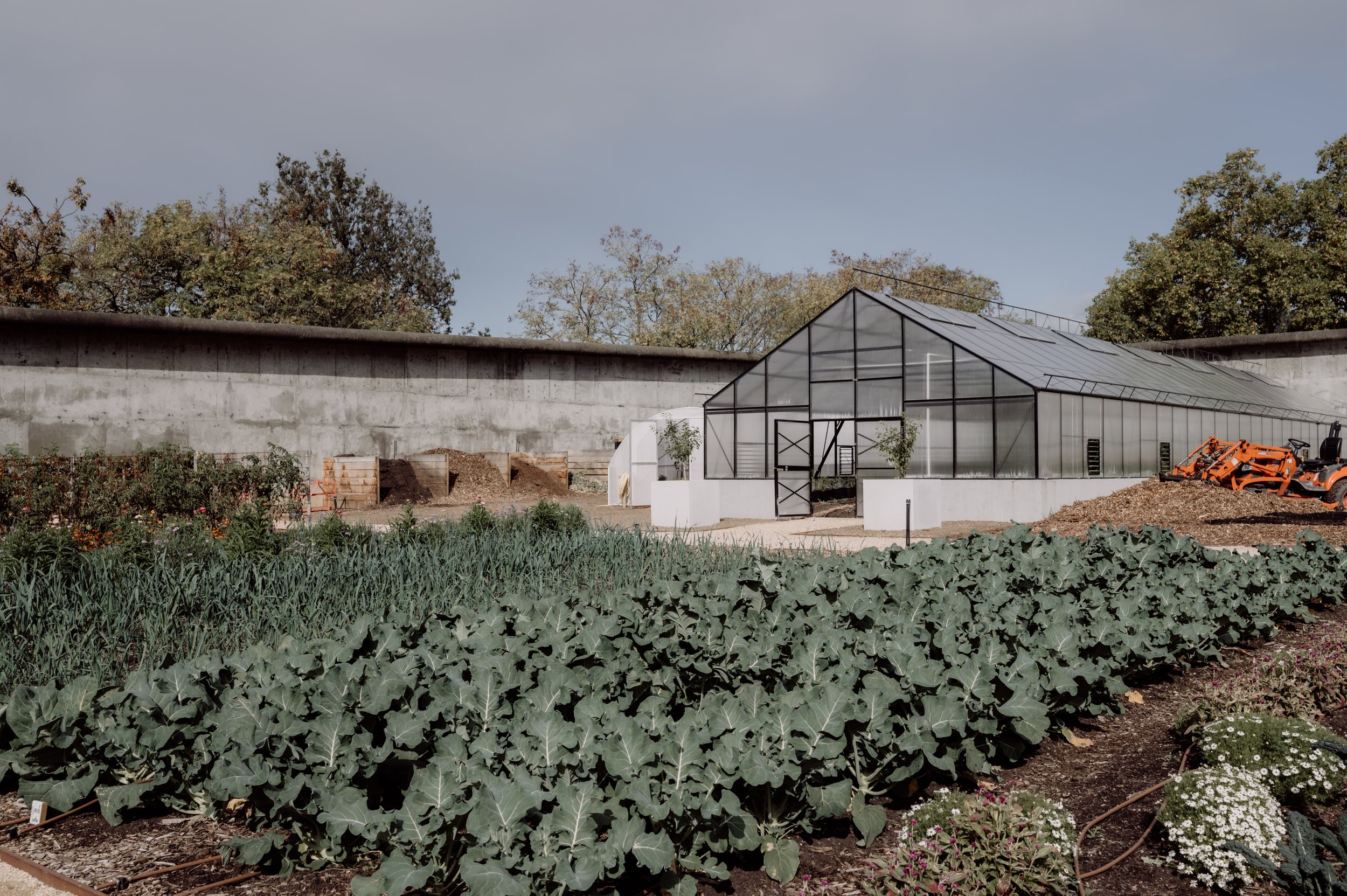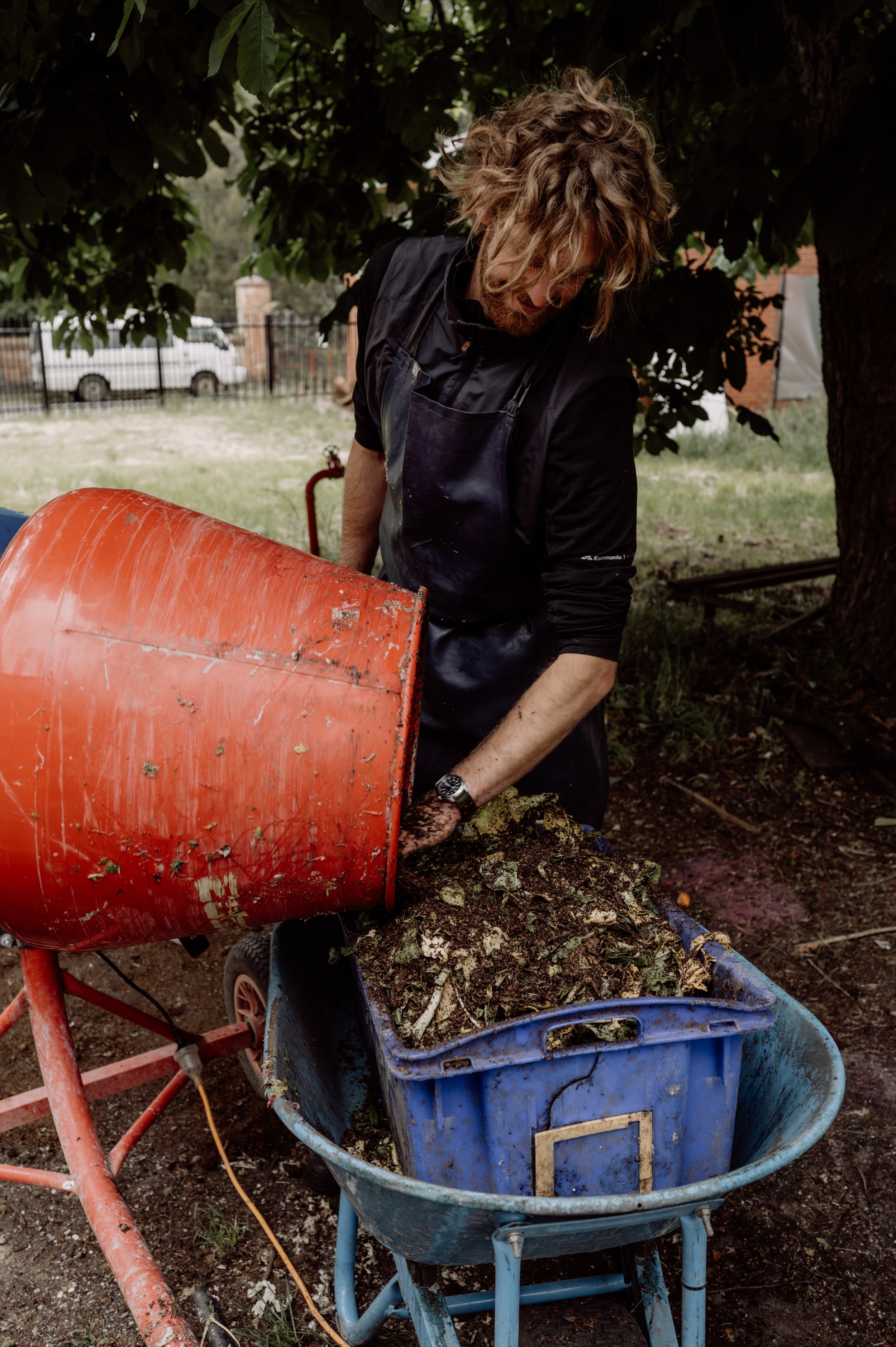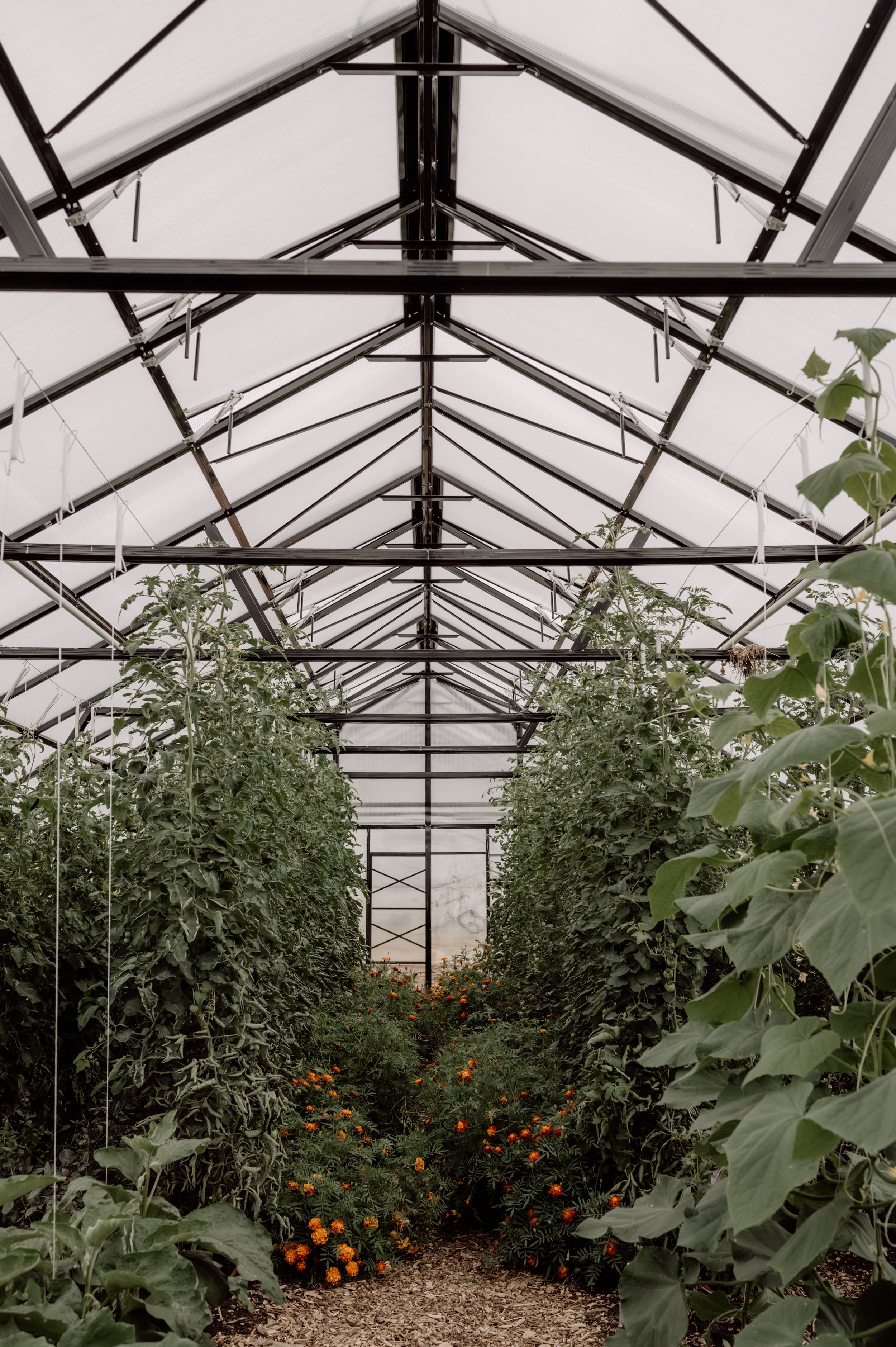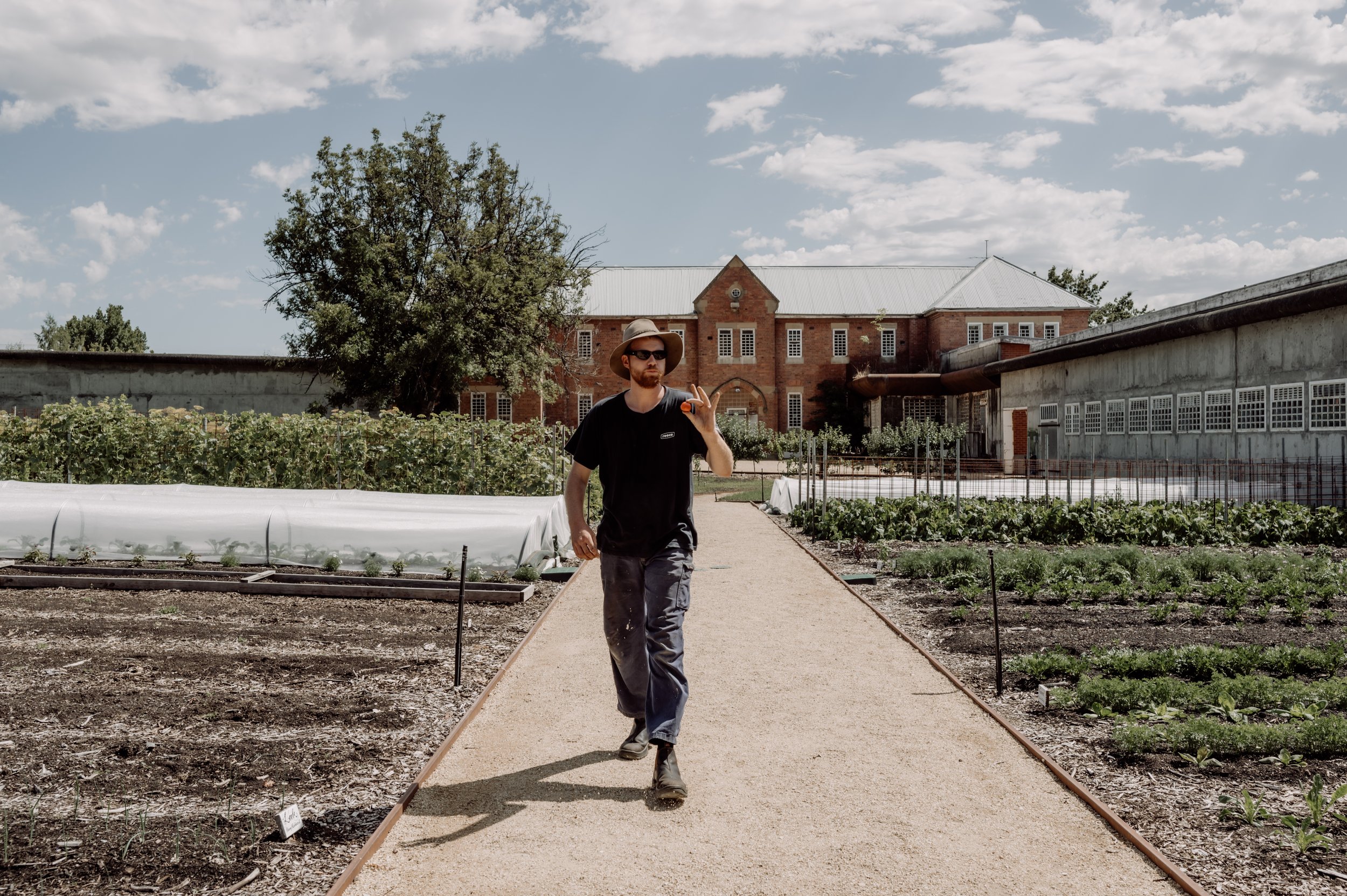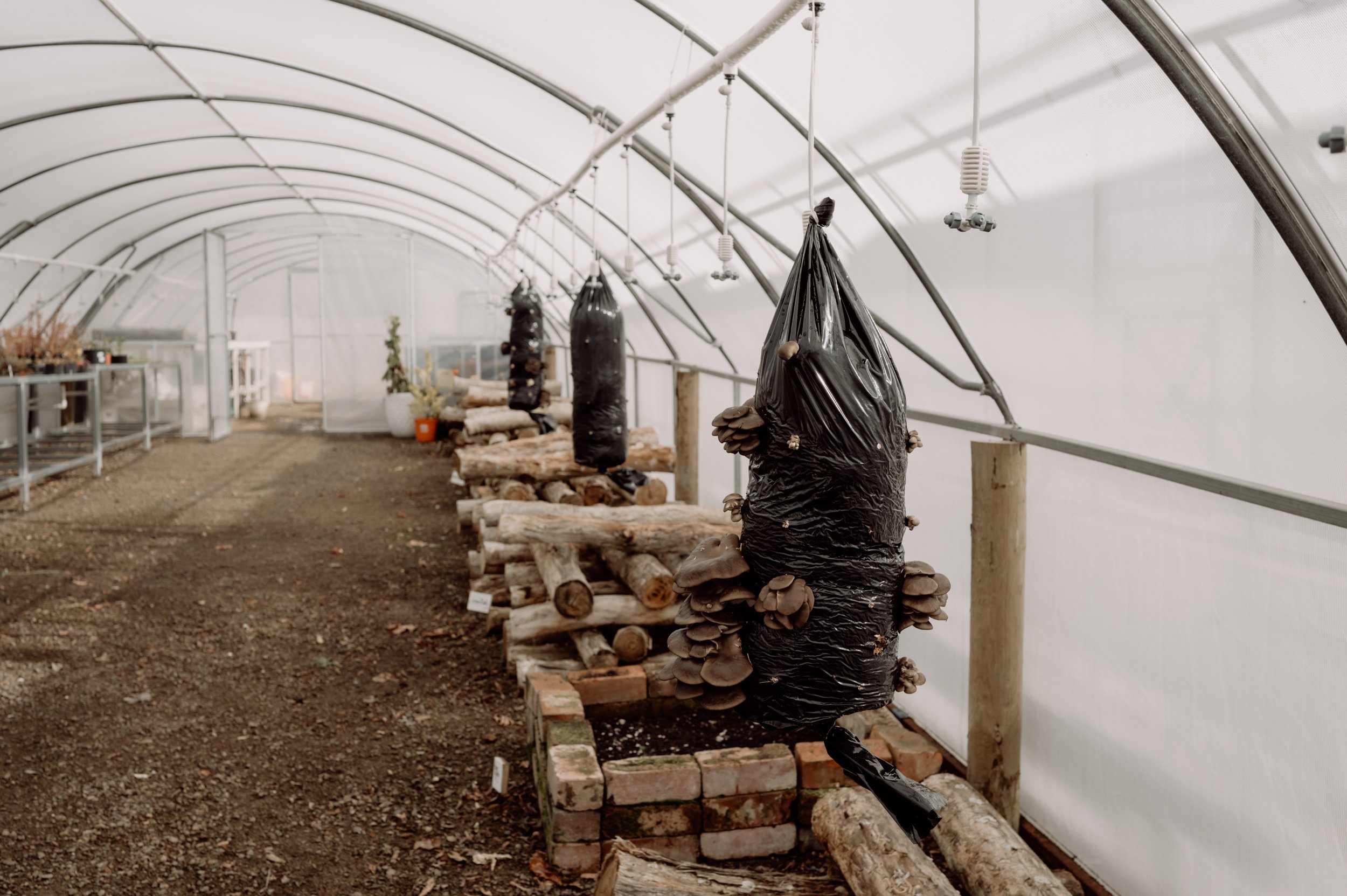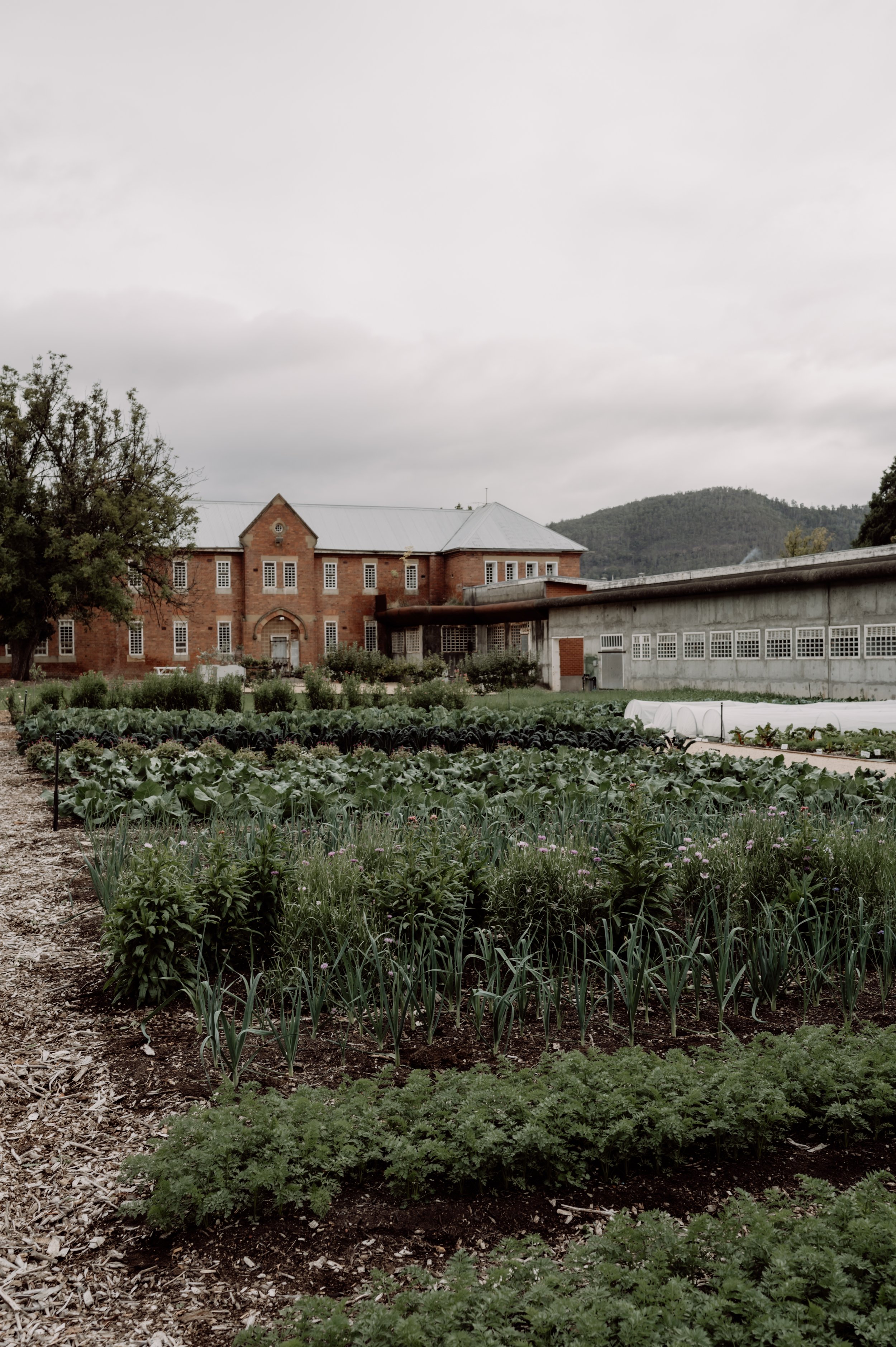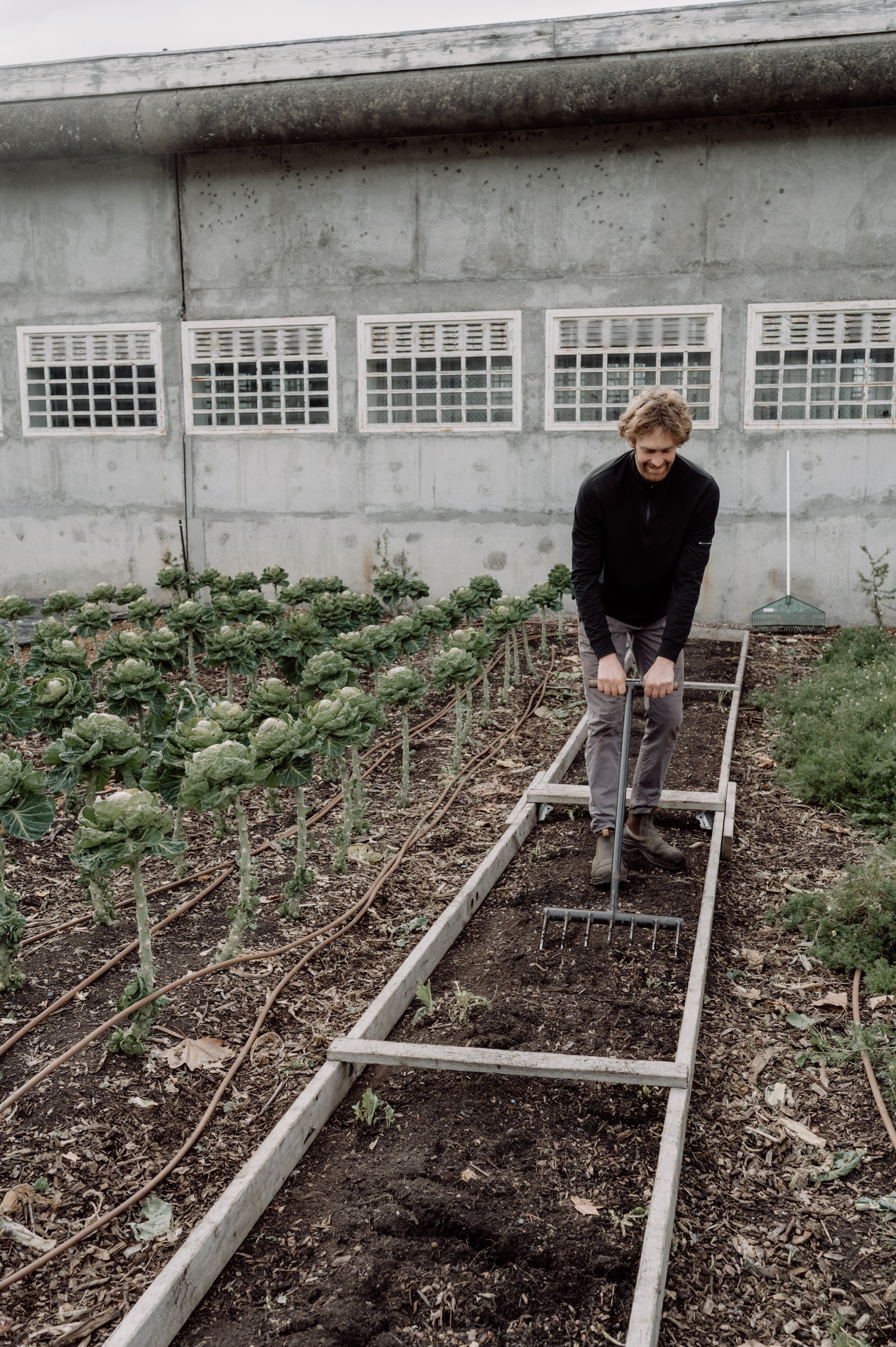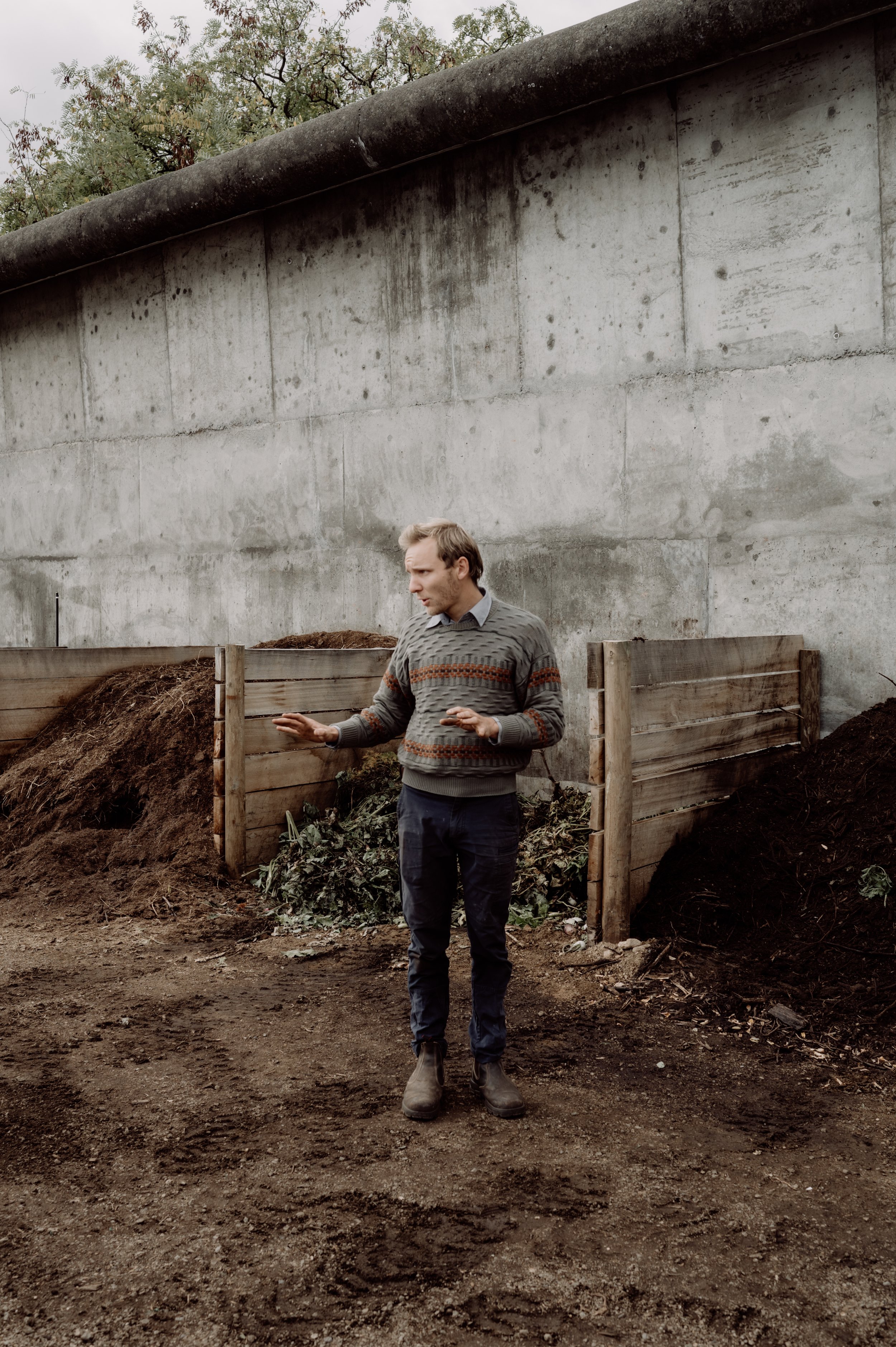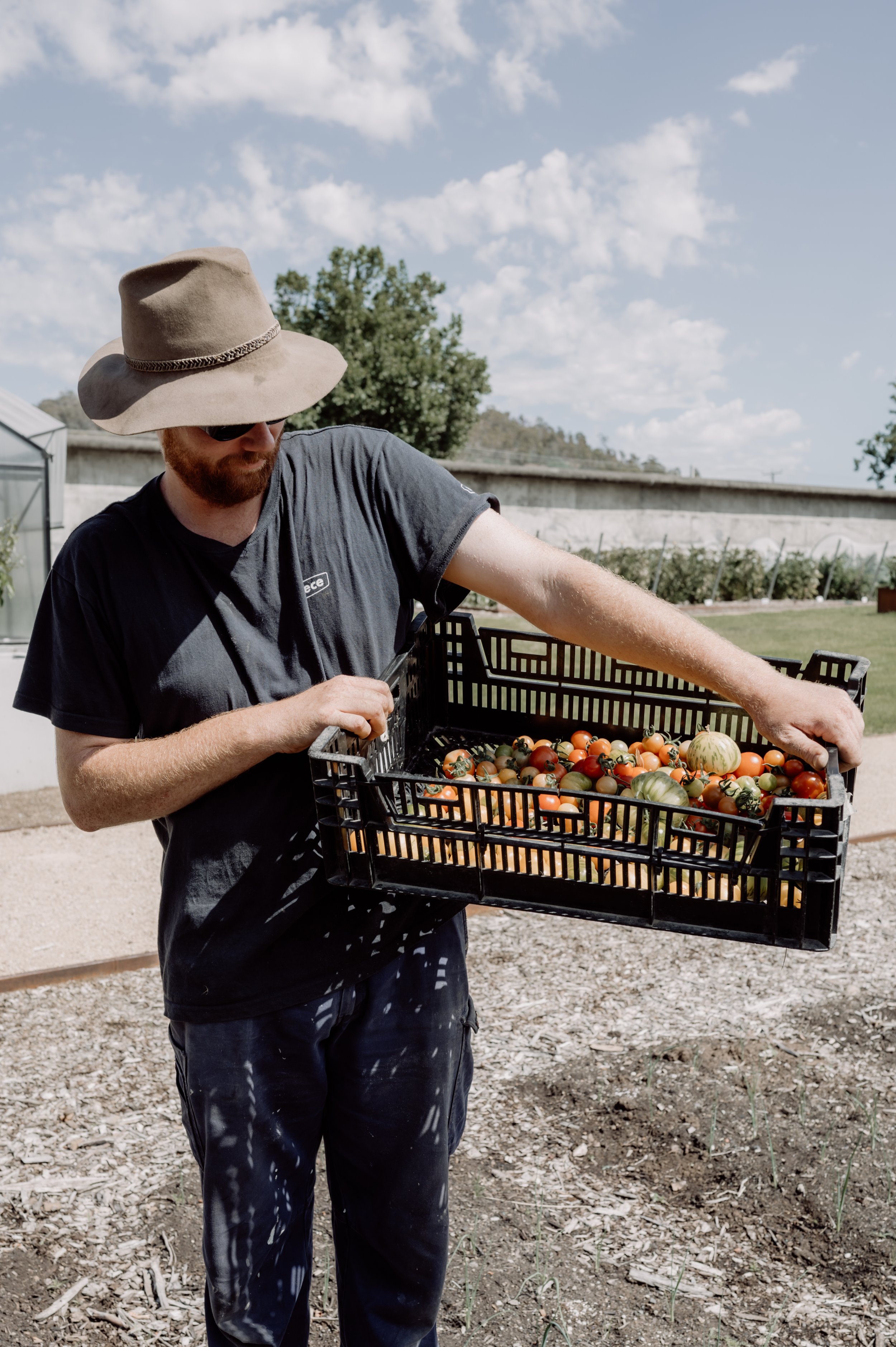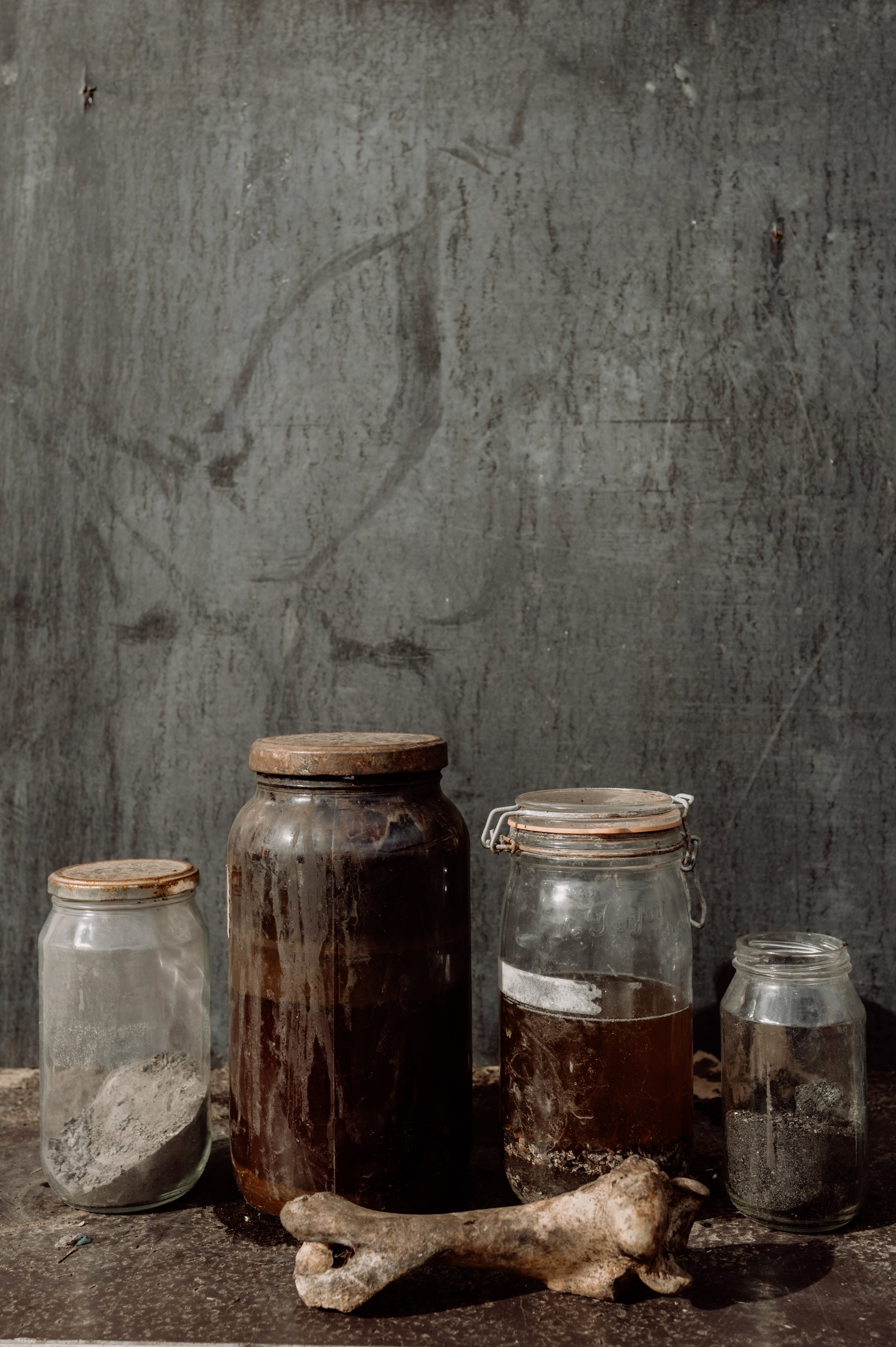Sustainability
To be truly sustainable means looking hard and often at your own practices. For us, that means scrutinising every ingredient and product, and asking ourselves how we can do better, understanding that the answer to that question won’t often point to an easy solution.
In a world where you can access any food at any time from anywhere, we have made the decision to be hyperlocal, offering a food and beverage experience that creates an authentic sense of place.
Below are some of the ways that we are pursuing genuine environmental sustainability.
-
The food waste created in our restaurant, kiosk and cooking classes presents us with an excellent opportunity to nourish our kitchen garden. Most organic matter is processed through our comprehensive composting system, where it is repurposed into natural nutrition for our fruit and vegetable crops.
Meat bones are cooked at high temperatures over three days in our wood-fired oven, and converted in to “bone char” that is used in potting mixes and compost systems to create microbe refuges. Similarly, cooked oyster and egg shells are crushed and soaked in vinegar, with the mineral-rich liquid then used to fertigate crops for on-demand nutrition during special phases of growth, such as flowering and fruiting.
Other items are used as sprayed amendments in our garden. Whey from the kitchen’s natural cheesemaking processes is used as a calcium supplement, and fish waste is fermented into fish hydrolysate to provide us with a nitrogen-based broad spectrum mineral tonic.
All paper towels used in the restrooms and kitchen are collected and shredded, and then mixed with garden waste to provide nutrition for our worm farms.
Overall, we view waste as a critical resource. These practices help us to save more than 12,000 kilograms of waste from landfill each year, and simultaneously provide our garden with almost everything it needs for each growing season.
-
We source 90% of the produce used in our restaurant, kiosk and cooking classes from our own kitchen garden, and procure the remainder from exclusively Tasmanian organic farms with sustainable practices and a commitment to the health of their land.
Meat animals are raised on small-scale, free-range farms, and we purchase the whole carcass to be broken down and used in its entirety. Sustainable and wild-caught fish are similarly purchased whole, and direct from Tasmanian fishermen, with under-appreciated species often utilised in interesting ways.
Bread is baked on-site in our wood-fired oven, using a combination of Australian organic and freshly-milled Tasmanian grain.
Milk is sourced from a Tasmanian dairy herd and delivered in bulk in reusable containers. To negate the need for freeze-dried milk cultures from overseas laboratories, we use the same milk to make our own kefir culture for our natural cheesemaking.
-
From day one, we have been committed to reducing bottled glass. To this end, we have installed a water filtration system to deliver both still and sparkling water without the waste created by bottled water. We also work with several local distillers to receive their spirits in bulk reusable containers to reduce our glass waste.
Coffee is roasted in Hobart by Zimmah Coffee Roasters, and delivered to the restaurant in large reusable containers to reduce our packaging waste. Spent coffee grounds are used in the kitchen for ferments, and in the garden compost.
Our bar and kitchen enjoy a symbiotic relationship, whereby leftover wine and cider are converted into vinegar for use in cooking, and whey by-product from the cheesemaking process is repurposed in the creation of non-alcoholic drinks and cocktails.
Though there are no commercial citrus growers in Tasmania, all citrus used in the bar is procured locally, with a dependence on backyard trees and our own citrus grove.
-
While we encourage our guests to enjoy their kiosk treats on our lawn with food served on enamel plates, we have also given careful thought to the packaging used for takeaway orders. Our coffee cups from I Am Not Paper are made with plant pulp, and all other takeaway containers are made from 100% FSC-certified paper or rapidly renewable sugarcane. Importantly, all of our takeaway packaging is suitable for home composting.
-
We are proud to serve our restaurant dishes on crockery crafted exclusively by Tasmanian potters, thereby supporting our local artisan community as well as reducing our carbon footprint through transport miles.
Our business cards are made from home-compostable post-consumer paper, and our menus are printed on 100% recycled paper, and later reused as notepads by our front-of-house team.
In keeping with our philosophy of sourcing Tasmanian ingredients for our kitchen and bar, the floral arrangements displayed throughout the venue are grown in our own garden.
